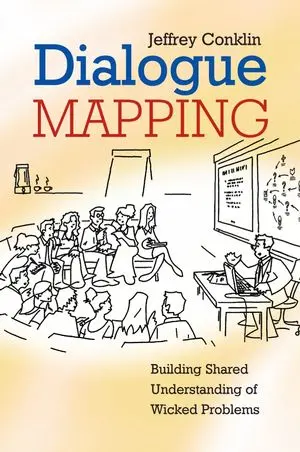This new edition of Handbook of Mentalizing in Mental Health Practice reflects a vibrant field undergoing development along a number of dimensions important for mental health. As evidenced by the number of experts contributing chapters that focus on specialized approaches to mentalization-based treatment (MBT), the range of mental disorders for which this therapy has proved helpful has substantially increased, and now includes psychosis. Second, the range of contexts within which the approach has been shown to be of value has grown. MBT has been found to be useful in outpatient and community settings, and, more broadly, with children, adolescents, couples, and families, and the social contexts where they are found, such as in schools and even prisons. Finally, the framework has been shown to be generalizable to an understanding of the social context of mental health. The model advanced in this book goes beyond an understanding of the development of mentalizing and aims to provide an understanding of its role in a range of social processes.Key concepts, themes, and approaches clearly articulated throughout the book include the following: ? Mentalizing is a transdiagnostic concept applicable to a range of mental health conditions, including trauma, personality disorders, eating disorders, depression, substance use disorder, and psychosis. The chapters devoted to these disorders emphasize MBT skills acquisition and techniques for introducing mentalizing into psychotherapy. ? Mentalizing plays an important role in understanding how teams, systems, and services interact to facilitate or undermine interventions and service delivery. Chapters on mentalizing in teams and wider systems are included to help clinicians reduce negative impacts on clinical care and support reliable and responsive pathways to treatment.? In an effort to encourage clinicians to integrate mentalizing into their clinical practice, empirical research on the developmental origins of mentalizing and how a focus on mentalizing can improve outcomes for patients is incorporated throughout the volume.? Improved mentalizing increases resilience to adversity, perhaps protecting individuals from relapse, and improves therapeutic outcomes. The relevant research, as well as proven techniques for promoting resilience and trust, are discussed at length in the book.? Finally, as an established component of the literature on neurobiology and higher-order cognition, mentalizing benefits from a number of different strands of research, ranging from neurobiology through child development to adult psychopathology. The book fully explores these relationships and their ramifications.
Authoritative, comprehensive, and cutting-edge, the Handbook of Mentalizing in Mental Health Practice is the single most important resource for clinicians and trainees learning about -- and incorporating -- MBT into their therapeutic repertoire.
چکیده فارسی
این ویرایش جدید کتابچه راهنمای ذهنی سازی در تمرینات سلامت روان نشان دهنده یک زمینه پر جنب و جوش است که در امتداد تعدادی از ابعاد مهم برای سلامت روان در حال توسعه است. همانطور که توسط تعداد متخصصانی که فصلهایی را که بر رویکردهای تخصصی درمان مبتنی بر روانسازی (MBT) مشارکت میکنند، مشهود است، دامنه اختلالات روانی که این درمان برای آنها مفید بوده است، به طور قابلتوجهی افزایش یافته است و اکنون شامل روانپریشی نیز میشود. ثانیاً، دامنه زمینه هایی که در آن رویکرد ارزشی نشان داده شده است، رشد کرده است. مشخص شده است که MBT در محیطهای سرپایی و اجتماعی و به طور گستردهتر برای کودکان، نوجوانان، زوجها و خانوادهها و زمینههای اجتماعی که در آن یافت میشوند، مانند مدارس و حتی زندانها مفید است. در نهایت، نشان داده شده است که این چارچوب به درک زمینه اجتماعی سلامت روان قابل تعمیم است. مدل ارائه شده در این کتاب فراتر از درک رشد ذهنی سازی است و هدف آن ارائه درک نقش آن در طیف وسیعی از فرآیندهای اجتماعی است. مفاهیم، مضامین و رویکردهای کلیدی که به وضوح در سراسر کتاب بیان شده اند عبارتند از: ذهنی کردن یک مفهوم فرا تشخیصی است که برای طیف وسیعی از شرایط سلامت روان، از جمله ضربه، اختلالات شخصیت، اختلالات خوردن، افسردگی، اختلال مصرف مواد و روان پریشی قابل استفاده است. فصل های اختصاص داده شده به این اختلالات بر کسب مهارت های MBT و تکنیک هایی برای معرفی ذهنیت به روان درمانی تاکید دارند. ? ذهنی کردن نقش مهمی در درک نحوه تعامل تیم ها، سیستم ها و خدمات برای تسهیل یا تضعیف مداخلات و ارائه خدمات ایفا می کند. فصلهایی درباره ذهنیسازی در تیمها و سیستمهای گستردهتر برای کمک به پزشکان برای کاهش اثرات منفی بر مراقبتهای بالینی و حمایت از مسیرهای قابل اعتماد و پاسخگو برای درمان گنجانده شده است. در تلاش برای تشویق پزشکان به ادغام ذهنی سازی در عملکرد بالینی خود، تحقیقات تجربی در مورد ریشه های رشد ذهنی سازی و اینکه چگونه تمرکز بر ذهنی سازی می تواند نتایج را برای بیماران بهبود بخشد، در سراسر جلد گنجانده شده است. ذهنیتسازی بهبودیافته، انعطافپذیری را در برابر ناملایمات افزایش میدهد، شاید از افراد در برابر عود محافظت میکند، و نتایج درمانی را بهبود میبخشد. تحقیقات مربوطه و همچنین تکنیک های اثبات شده برای ارتقای انعطاف پذیری و اعتماد، به طور مفصل در کتاب مورد بحث قرار گرفته است. در نهایت، به عنوان یک مؤلفه تثبیت شده از ادبیات عصبشناسی و شناخت مرتبه بالاتر، ذهنیسازی از تعدادی از رشتههای مختلف تحقیقات، از نوروبیولوژی تا رشد کودک تا آسیبشناسی روانی بزرگسالان، بهره میبرد. این کتاب به طور کامل این روابط و پیامدهای آنها را بررسی می کند.
معتبر، جامع و پیشرفته، کتاب راهنمای ذهنی سازی در تمرینات سلامت روان تنها مهم ترین منبع برای پزشکان و کارآموزان است که در مورد -- و گنجاندن -- MBT را در کارنامه درمانی خود می آموزند.
ادامه ...
بستن ...
Ebook details:
عنوان: Handbook of Mentalizing in Mental Health Practice
نویسنده: Medicine & Health Science Books @ Amazon.com
ناشر: Amer Psychiatric Pub Inc; 2 edition (April 23, 2019)
زبان: English
شابک: 1615371400, 978-1615371402
حجم: 7 Mb
فرمت: TRU pdf
ادامه ...
بستن ...










